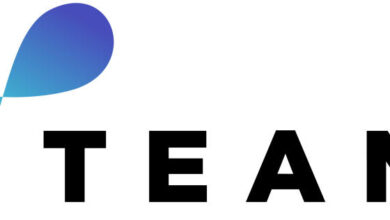Making Sense of For Benefit Accounts (FBOs) and Fintech’s Future

The recent Synapse bankruptcy represents one of the biggest implosions in the FinTech sector’s history.
The ongoing mess at the banking-as-a-service (BaaS) platform has affected over a hundred thousand U.S. end-users, including other FinTech businesses, and investigations into its fallout has brought to light an estimated $85 million shortfall between what Synapse’s depositors are owed and what the failed FinTech’s own accounts show.
According to a Thursday (June 13) report by the Chapter 11 trustee, former FDIC Chair and current Cravath, Swaine and Moore partner Jelena McWilliams, “At the time of this Report, the Trustee has been informed by at least one Partner Bank that there exists an approximate shortfall of $65 – $96 million according to reconciliation progress to date.”
While there are no final answers yet on what happened to the tens of millions of dollars of missing funds, during an earlier creditor hearing, former Synapse CEO Sankaet Pathak said to the court that Synapse may have commingled end-user funds, FinTech programs’ reserve and operating funds, and Synapse’s own operating funds in FBO accounts.
These types of accounts allow banks and FinTechs to work together in order to provide customers with access to advanced banking features without compromising on security or privacy standards.
“For Benefit Of” or “FBO” accounts could be key to both understanding where the money at the heart of the Synapse collapse disappeared to, as well as how to redistribute it once it is found.
Read more: Synapse’s Downfall Provides Hard Lessons for Its B2B Partners
Synapse’s Potentially Commingled Funds at Center of Collapse Recovery
FBO accounts, which are custodial money pools that allow FinTech companies to manage funds on behalf of their users without assuming legal ownership of the account, are a key component of the BaaS sector’s regulatory compliance programs.
Because they enable FinTech companies to manage customer funds while adhering to legal requirements, FBO accounts are fundamental to the operational integrity, regulatory compliance and customer trust that underpins the fintech industry.
The top priority of Chapter 11 trustee McWilliams is restoring end users’ access to their funds by untangling the inner workings of Synapse’s proprietary ledger system. That’s shaping up to be a tall task, due to the alleged commingling of funds across FBO accounts.
At its heart, the issue is that without Synapse’s own cooperation around establishing access to information that it controls, the money held in FBO accounts under Synapse’s name cannot be returned to the end-users of the beneficiaries of those accounts.
Consequently, other FinTech’s customers are suffering. As PYMNTS reported, some 85,000 of FinTech startup Yotta’s customers — holding a total of $112 million in savings — have been locked out of their account, as just one example of the Synapse collapse’s ripple effect, while Copper, another FinTech that used Synapse, has announced it will shutter at least some of its offerings, including bank deposit accounts and debit cards.
Read more: FDIC Warnings and ‘False’ Deposit Insurance Claims Spotlight Non-Bank Risks
The Changing Needs of Compliance in the Digital Banking Age
Per Thursday’s report, the Synapse Trustee “began learning from Partner Banks, Fintech Partners and other parties in interest of the challenges in the reconciliation process precipitated by Synapse’s bankruptcy and abrupt winding down. The Trustee was informed of situations where partner banks lost access to Synapse systems, had reason to believe there were inaccuracies in Synapse’s ledger and identified unexpected shortfalls in the FBO Accounts they hold. At the time of the Trustee’s appointment, Partner Banks did not have open lines of communication or protective mechanisms in place to facilitate data sharing among each other.”
“It’s very clear in hindsight that Synapse was not executing on its duty to reconcile dollars,” Amias Gerety, a partner at QED Investors, told PYMNTS in an interview posted Monday (June 17), noting that many other firms make sure that every FinTech working with a bank has an FBO account dedicated to that FinTech with that bank, meaning there’s no possibility of commingling funds.
The importance of BaaS best practices comes against the backdrop of roughly two-thirds of banks and credit unions entering into at least one FinTech partnership in the past three years, with 76% of banks viewing FinTech partnerships as necessary to meeting customer expectations, according to PYMNTS Intelligence.
In terms of some sort of resolution, as a status report filed June 6 detailed, Synapse Brokerage FBO funds could be channeled into a single account, and the trustee/court would determine what gets paid out to each end user. The general Synapse FBO accounts held elsewhere could see partial payments or payments to FBO accounts that can be fully reconciled, or perhaps there may be no payments until every single account can be ultimately reconciled.



